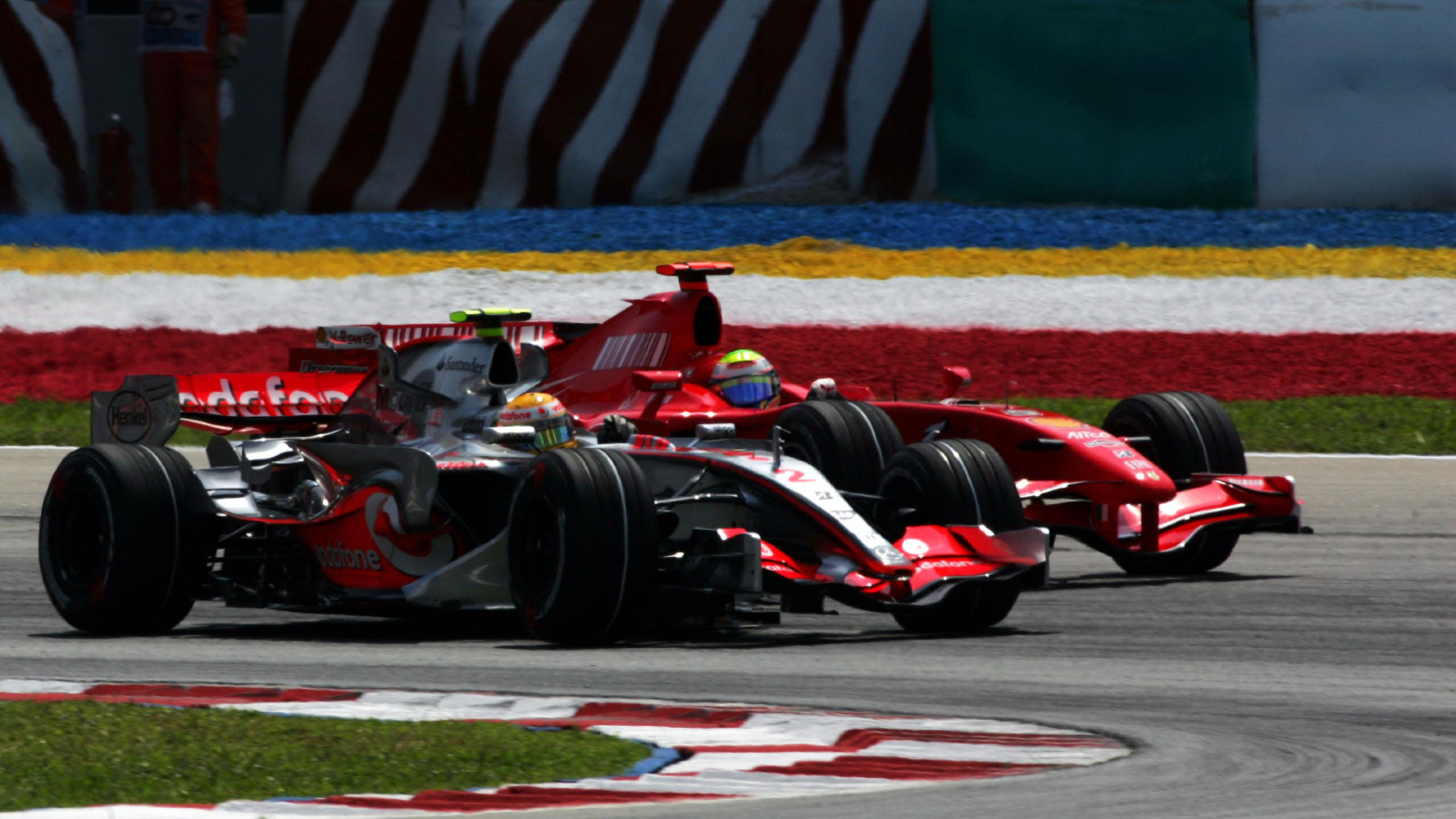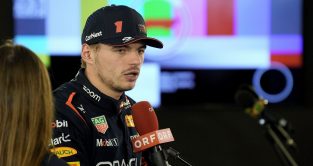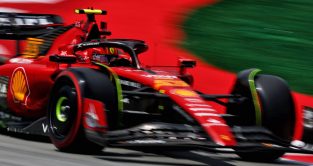The eight most expensive penalties in F1 history: Which team has paid the largest amount?

The FIA has handed out some pretty hefty financial penalties over the years, but what are Formula 1’s biggest fines in history?
Let’s run through the current top eight, which includes two new entries thanks to Aston Martin and Red Bull last season.
But first, let’s take you back to the German Grand Prix involving Ferrari, Felipe Massa and Fernando Alonso…you know where this is going, don’t you?
8.Ferrari [2010] – $100,000 (€94,585)
Ferrari were given a sizeable fine after blatantly imposing team orders on Felipe Massa to give victory to Fernando Alonso and affecting the outcome of the 2010 German Grand Prix.
A year to the day after his traumatic accident in Budapest in 2009, Felipe Massa had been leading the race at Hockenheim when his race engineer Rob Smedley got on team radio and said “Felipe, Fernando is faster than you. Do you understand?” before apologising to his driver as Massa yielded position to Alonso behind him.
Team orders, then illegal, resulted in Ferrari being given a $100,000 fine – small potatoes for Ferrari as the extra points kept Alonso’s title challenge burning.
The stewards forwarded the case to the World Motor Sport Council, who upheld the stewards’ decision but opted against any further sanctions against Ferrari.
Ferrari’s actions resulted in the team orders rules being adjudged as untenable, with team orders legalised for 2011 as a result.
7. USF1 [2010] – €309,000 ($326,000)
USF1 were a short-lived American-led attempt at a Formula 1 team, headed up by Ken Anderson and Peter Windsor. Granted entry for the 2010 F1 World Championship, USF1 ultimately failed to enter and were investigated for breaching the Sporting Regulations and the International Sporting Code as a result.
With the team having gone into liquidation before even entering a race, the FIA themselves became a creditor after imposing a fine of €309,000 – equivalent to the entry fees for the 2010 Championship.
USF1 were also excluded from ‘any competition’ as a result of the FIA investigation. With USF1 having no financial liquidity, the fine served as an effective forfeiture of the entry fee, while the team were also ordered to pay the FIA’s costs for the disciplinary procedure.
The team had attempted to argue force majeure as a reason for their lack of finances, citing negative media coverage (which included a statement of doubt from then F1 boss Bernie Ecclestone), but the FIA ruled there was no evidence for this.
6. Racing Point [2020] – €400,000 ($473,000)
The team that evolved into the current Aston Martin squad were hit with a 400,000 euro fine during the 2020 season, after fellow midfielders Renault protested against the design of the Racing Point’s front brake ducts.
The situation kicked off with a protest after the Styrian Grand Prix, with the FIA seizing the car’s brake ducts for a closer look as Renault complained about the design being strikingly similar to that of Mercedes’ 2019 design for their title-winning W10.
As it turns out, the design was a copy, but the situation became quite complicated. While the rules in 2020 forbade the purchase of certain intellectual property from other teams, it emerged Racing Point had bought Mercedes’ brake ducts for the 2019 season – when it was permitted.
Having copied the front brake ducts in 2019, but using their own design for the rear brake ducts, Racing Point’s look to the W10 for inspiration for 2020 meant their rear brake ducts were based on the 2019 design – the sporting regulations had been tightened up over the winter of 2019/2020 to prohibit the sharing of brake duct designs.
然而,赛车点”s knowledge of the design could be proven as stemming from 2019, with the stewards ruling that the team couldn’t be expected to simply forget what they had learned about the Mercedes brake ducts during the season the purchase had occurred. As a result of this ‘grandfathering’ of knowledge, the team were given a hefty 400,000 euro fine based on a breach of the Sporting Regulations, not the Technical.
The team were also deducted 15 championship points and, despite the design technically being in breach of the aforementioned Sporting Regulations for the remainder of the season, were not forced to change the brake ducts.
5. Aston Martin [2022] – $450,000 (€426,000)
Aston Martin were given a $450,000 fine for a procedural breach under the new Financial Regulations that covered the 2021 season.
2021 was the first year with a hard cap put in place to impose a limit on car and performance-related spending for the Formula 1 teams. To that end, each of the 10 teams had to hand over detailed accounts to the FIA for analysis and to ensure conformity with the $140,000,000 cap.
However, in mid-2022, the FIA revealed not every team had managed to comply entirely with the requirements of the rules. While only one team actually broke the spending cap (more on that soon!), Aston Martin were one of two teams to have a ‘procedural breach’.
While a minor infringement from Williams netted them a $25,000 fine, Aston Martin were given the far more costly fine ‘ because it inaccurately excluded and/or adjusted costs in the calculation of its Relevant Costs’.
The lengthy list of inaccurate costingscan be viewed on the FIA’s own ruling,with the governing body stressing that there was ‘no accusation or evidence that Aston Martin had sought or obtained any undue advantage as a result of the breach’.
Aston Martin were offered an Accepted Breach Agreement (ABA), which was accepted by the team – meaning a fine of $450,000 as well as relevant costs to the FIA.
4. Ferrari (2002) – $1,000,000 (€945,870)
车队遭遇了巨额罚款后the controversial 2002 Austrian Grand Prix, when Rubens Barrichello and Michael Schumacher swapped places exiting the final corner to ensure the German driver won the race.
Barrichello had been set for the win when he eased off the throttle to allow his team-mate through and consolidate his lead in the Drivers’ Championship – an instruction that had been given to him by Ferrari team boss Jean Todt.
While team orders were, at the time, frowned upon as opposed to outright illegal, the team were handed the fine due to how the podium ceremony played out.
The matter went before the World Motor Sport Council that summer, with the WMSC ruling: “The World Motor Sport Council deplored the manner in which team orders were given and executed at the Austrian Grand Prix.
“Nevertheless the council finds it impossible to sanction the two drivers, because they were both contractually bound to execute orders given by the team.
“The council also recognised the long-standing and traditional right of a team to decree the finishing order of its drivers in what it believes to be the best interest of its attempt to win both world championships.
“In the circumstances, the council decided; with some reluctance; that it could take no action over the team orders given by Scuderia Ferrari Marlboro at the Austrian Grand Prix.”
However, it was the fact that Barrichello stood on the top step of the podium that resulted in the team’s fine, having been ushered there by Schumacher in the embarrassment of the moment.
“The podium procedure was not followed,” said the WMSC statement.
“Having finished second, Rubens Barrichello, who is a Brazilian national, stood on the top step while the German national anthem was played for Michael Schumacher. [Schumacher] then ascended the top step and both drivers, rather than just the winner, stood there while the Italian national anthem was played.
“Michael Schumacher took the trophy for first place from the Austrian Chancellor, did not acknowledge him, handed the trophy to Rubens Barrichello, and then took the second place trophy from the Austrian Deputy Chancellor.
“It is the duty of each team to ensure that its contracted drivers observe the podium procedures and do not in any way embarrass the national authorities of the country where a Grand Prix takes place.”
Both drivers, as well as the team, were found guilty of a breach of the Sporting Regulations with a fine of $1 million imposed on the three parties collectively.
3. Turkish Grand Prix organisers [2006] – $5,000,000 (€4,730,900)
Unusually, one of the largest ever F1 fines was handed out to a non-competitor back in 2006, as the Turkish Grand Prix organisers were given a $5 million slap on the wrist for some unusual podium politics.
马萨为法拉利赢得了2006年的种族,与his trophy handed to him by Turkish Cypriot leader Mehmet Ali Talat. On television, he was introduced as “the President of the Turkish Republic of Northern Cyprus”.
This didn’t go over well with the Cypriot community in Greece, nor with then-FIA President Max Mosley as this was a breach of the sport’s political neutrality stance.
This was no minor crisis, with the World Motor Sport Council summoning representatives from Turkey’s national sporting authority and race organisers to answer charges of breaches of FIA statutes, the Sporting Regulations, and the International Sporting Code.
The FIA were eventually convinced the actions had been opportunistic, rather than pre-meditated, and issued a fine of $5 million – then the largest ever fine handed out in Formula 1 history.
Acceptance of the fine meant the Turkish Grand Prix remained on the calendar, with an annual race held up until 2011 before Istanbul Park fell off the calendar – eventually returning for the COVID-affected seasons in 2020 and ’21.
2. Red Bull Racing [2022] – $7,000,000 (€6,624,730)
The aforementioned budget cap introduction in 2021 may have caught two teams out in terms of procedure, but just one team fell foul of the actual spending limit of $140 million.
After a lengthy investigation into each team’s accounts for 2021, Constructors’ Champions Red Bull were found to have committed a ‘Minor Overspend Breach’ of just under £1.9 million ($2.3 million).
The overspend breach (which worked out as a 1.6% overspend), came about as a result of Red Bull incorrectly excluding and/or adjusting costs. These costs included catering services, associated employers’ social security contributions, clerical errors, certain travel costs, and costs of maintenance –a more detailed description can be read here.
The FIA acknowledged that, had a tax credit been correctly applied, Red Bull’s breach would have been ‘just’ £432,652.
Having committed the breach, Red Bull were offered an Accepted Breach Agreement which included a fine of $7 million and a 10% reduction in wind tunnel development time for 2023. The monetary fine is the second largest in F1 history.
1. McLaren [2007] – $100,000,000 (€94,626,000)
Not just the largest ever fine in F1 history, McLaren were given the biggest penalty in any sport’s history when they were smacked with a 100 million dollar fine in 2007.
‘Spygate’ became the dominant topic of the season, after a McLaren employee was found to have been in possession of detailed documentation regarding the design of the 2007 Ferrari F2007 car – the matter coming to light as a result of the employee’s wife going to a photocopying shop in the UK with the documentation, and an employee of the photocopying shop becoming suspicious and contacting Ferrari’s Maranello factory.
An extensive investigation began, with McLaren’s Mike Coughlan and former Ferrari employee Nigel Stepney the focus of the matter as the FIA intervened.
On-track, the Ferrari vs. McLaren battle was just as spirited as the off-track dramas spiralled. While an internal investigation at McLaren found no evidence of wrong-doing or that employees had knowledge of the Ferrari design, the matter was re-opened after team boss Ron Dennis engaged then-FIA President Max Mosley following a terse exchange between Dennis and then-McLaren driver Fernando Alonso.
Alonso, together with Lewis Hamilton and test driver Pedro de la Rosa, were all summoned before the FIA and granted immunity in trade for relevant information – both Alonso and Hamilton were able to continue contesting for the Drivers’ Championship, while the FIA hit McLaren with a disqualification from the Constructors’ Championship, as well as the eye-watering 100 million dollar fine.
McLaren would later to go on to publicly accept that certain members of their team had had access to Ferrari’s technical information, apologising for the fact it took an FIA investigation for the situation to be properly addressed.
McLaren duly paid the fine, while the FIA considered the matter closed in early 2008 following various payouts of legal fees and an extensive examination of the 2008 McLaren MP4/23.
Read more: The top 10 most expensive Formula 1 cars ever to be sold at auction






